After I wrote my article about the 15 amazing science-backed benefits of chia seeds, I was inspired to research another healthy “superseed”.
Superseeds, aptly called because they mimic superfoods in health benefits, include varieties such as:
- Pumpkin
- Flax
- Chia
- Hemp
- Sesame
- Wheat Germ
- Sunflower
- Nigella
So break out the incense, patchouli, and tie-dye – we’re talking about hemp today!
But before you grab your festival attire and vinyls, there’s one glaring misconception we need to clear up before we get into the nutritional benefits of hemp (they do exist!).
Isn’t Hemp Marijuana?
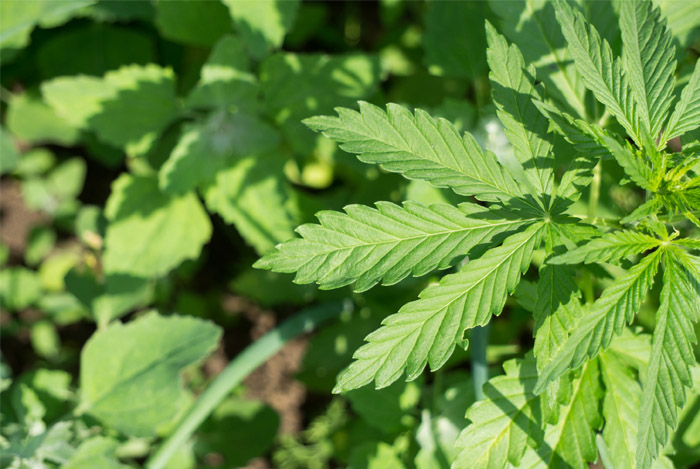 Hemp and marijuana are both Cannabis plants. But that’s really where their similarities end.
Hemp and marijuana are both Cannabis plants. But that’s really where their similarities end.
Think of hemp as the harder working brother of marijuana. While marijuana’s psychotropic chemical tetrahydrocannabinol (THC) will get you high, hemp holds down a more straight-laced job in the industrial world.
Hemp is a high-growing plant with sturdy fibers perfect for making rope, fiber, and paper. “The plant thrives without pesticides, purifies the soil around it, and kills weeds.”
Because of this, most hemp on the market is non-GMO and naturally organic – a truly healthy sustainable crop for our environment.
As far as THC goes, hemp can have as “low as 0.5 percent” THC, while marijuana plants for recreational drug use “typically contain around 15 percent THC.”
This is why eating hemp products won’t get you stoned or make you binge on munchies.
Nutritional Forms of Hemp
Hemp is so versatile it can be added to your diet in four separate ways.
Whole Hemp Seeds
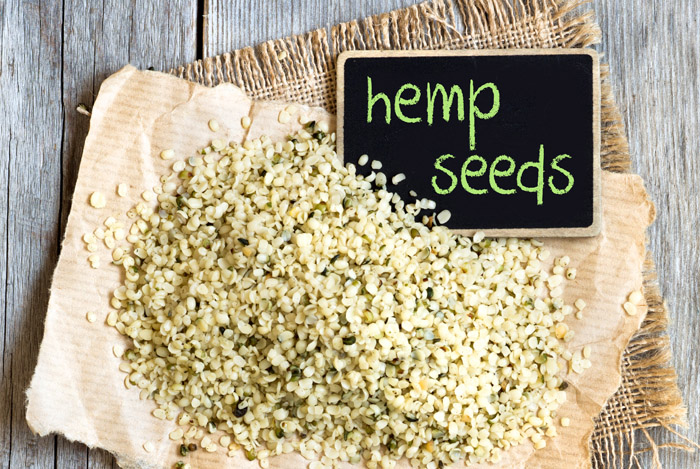 Hemp seeds have been illegal in some countries (due to their relation to marijuana), so they’re often sold as sterilized seeds. Bummer, you can’t plant a hemp garden in your backyard.
Hemp seeds have been illegal in some countries (due to their relation to marijuana), so they’re often sold as sterilized seeds. Bummer, you can’t plant a hemp garden in your backyard.
While sterilizing does damage some of the hemp seed oil, it doesn’t affect the fiber and protein content.
Speaking of fiber, you know how whole grain breads are better for you and have more fiber than processed and bleached white flour breads?
Well, the same can be said for hemp seeds. Hemp seeds in their hard shells are crunchy sources of insoluble fiber.
Insoluble fiber is responsible for scrubbing out our intestines to add bulk to our passing waste material as it’s being kicked out of our systems. Without insoluble fiber, our digested food would just sit in our guts causing that oh-so-uncomfortable feeling of constipation.
So if you’re looking to add more delicious fiber to your diet, as most people should be eating 25-38 g of daily fiber, crunch on hemp seeds in their shells.
But here’s the catch: hemp seeds actually become more protein-dense when you remove the hulls. By removing the hull, the essential fatty acid (EFA) content increases while the carb level decreases.
Shelled Hemp Seeds
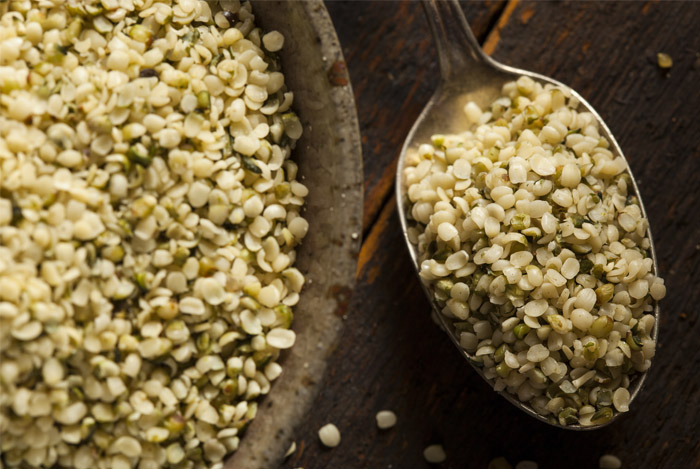 I prefer shelled hemp seeds not only because they taste better, but because they have higher protein levels than their unshelled version.
I prefer shelled hemp seeds not only because they taste better, but because they have higher protein levels than their unshelled version.
One ounce (or 2 tablespoons) of hemp seeds contains 10 g of protein!
Hemp seeds without their shells go by names such as hulled hemp seed, hemp hearts, shelled hemp, and even hemp nut (though it’s not a nut at all).
The hemp heart is a soft seed with a delicate, nutty flavor similar to pine nuts. My favorite ways to eat them are sprinkled in my Greek yogurt parfaits, topping my overnight oats, and added to almond butter dipped apples.
Hemp Seed Oil
 Oil made from pressed hemp seeds is high in EFAs. These “good fats” come from long chain polyunsaturated fats.
Oil made from pressed hemp seeds is high in EFAs. These “good fats” come from long chain polyunsaturated fats.
However, these polyunsaturated fats have relatively low smoke points (lower than olive oil, but higher than flax), which means they can oxidize at high temperatures – something you don’t want.
It’s always important to check the smoke point of your oil; you could be ingesting carcinogens and releasing toxic fumes into the air by using the wrong oil in your cooking. Make sure to check out my post about the healthiest cooking oils to protect yourself.
I wouldn’t cook with hemp seed oil, but it makes a delicious nutty oil for salad dressings. Tip: keep your hemp seed oil in the fridge to prevent oxidation.
Hemp Protein Powder / Flour
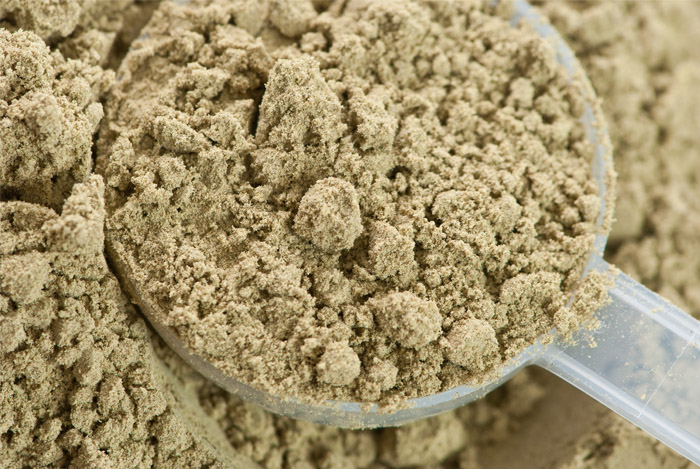 If you’re vegan or vegetarian you probably know all about hemp protein.
If you’re vegan or vegetarian you probably know all about hemp protein.
Hemp protein is made from the leftovers of hemp seed oil pressings.
If there’s less than 35% protein listed on your powdered hemp product, it constitutes hemp flour instead of hemp protein because there’s more fiber than protein. Anything over 35% is considered hemp protein, which is what you want because hemp is a complete protein that contains all of our essential amino acids.
Unlike whey, there’s absolutely no animal products or lactose in hemp protein, plus it offers up some fiber and minerals at no additional cost.
Even if you’re not a vegan, you may want to switch out your whey protein shakes for a hemp protein meal replacement smoothie.
Eating a variety of foods by incorporating different food families will diversify your nutrient intake and ensure that you’re getting a wide range of health benefits.
I like to vary my protein sources up and I reach for hemp protein when I’m going vegetarian for the day.
So now that you’ve met the many faces of hemp, let’s talk about what makes hemp seeds a nutritional powerhouse.
Hemp is High in Essential Fatty Acids
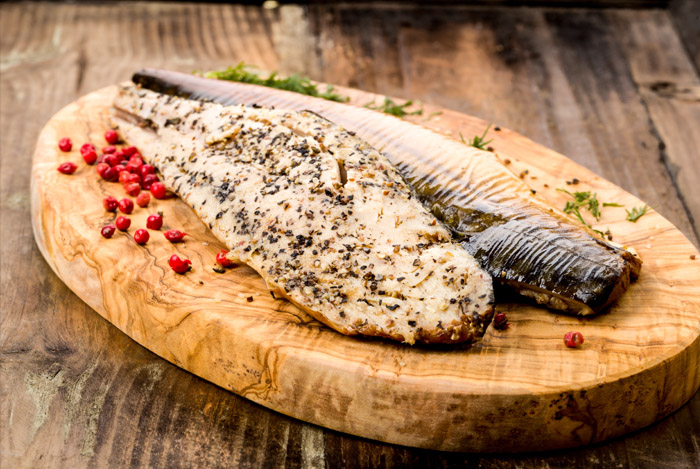 Hemp is an abundant source of the two types of essential fatty acids that our bodies need for basic functioning: omega-3 and omega-6.
Hemp is an abundant source of the two types of essential fatty acids that our bodies need for basic functioning: omega-3 and omega-6.
We should aim to balance a low level of omega-6s with a low level of omega-3s, around a 2–3:1 ratio or less.
Unfortunately, most American diets are heavy on the omega-6s and light on the omega-3s, eating them in a 15–17:1 ratio. No bueno!
Omega-6s hide in processed foods and oils. The hormones that omega-6s create tend to cause inflammation in our body, which triggers heart disease, cancer, obesity, hyperactivity, and even violent behavior.
On the other hand, omega-3s stop inflammation.
Two types of omega-3, eicosapentaenoic acid (EPA) and docosahexaenoic acid (DHA), are responsible for building hormones that control “immune function, blood clotting, and cell growth as well as components of cell membranes.”
According to research, an omega ratio of 4:1 was associated with a “70% decrease in total mortality.”
Even though our bodies need these fats, we cannot produce them on our own. So we have to find and eat foods that contain the right ratio.
I usually recommend eating omega-3s from fatty fish such as sardines, salmon, mackerel, etc. But if you’re going vegan, you’re in luck. Hemp seed has the ideal ratio of omega-6s and omega-3s.
What riches do all these omegas in hemp seeds offer up?
Well, I’m glad you asked. Here are 11 amazing health benefits of hemp.
1. Prevents Cardiovascular Disease
 The omega-3s in hemp seeds and hemp oil have high levels of alpha-linolenic acid (ALA), another fatty acid. These seem to “have a stabilizing effect on the heart.”
The omega-3s in hemp seeds and hemp oil have high levels of alpha-linolenic acid (ALA), another fatty acid. These seem to “have a stabilizing effect on the heart.”
One analysis concluded that the high levels of ALA in hemp seeds “may have favorable nutritional implications and beneficial physiological effects on the prevention of coronary heart disease and cancer.”
It’s not just ALA, but EPA and DHA tag-teaming to help your heart stay healthy.
“Clinical evidence suggests that EPA and DHA…help reduce risk factors for heart disease, including high cholesterol and high blood pressure.”
These three fatty acids not only lower your heart rate and prevent abnormal heart rhythms, but they also lower blood pressure. Omega-3s even slow the buildup of plaque in our arteries so blood flows better.
2. Lowers Bad Cholesterol
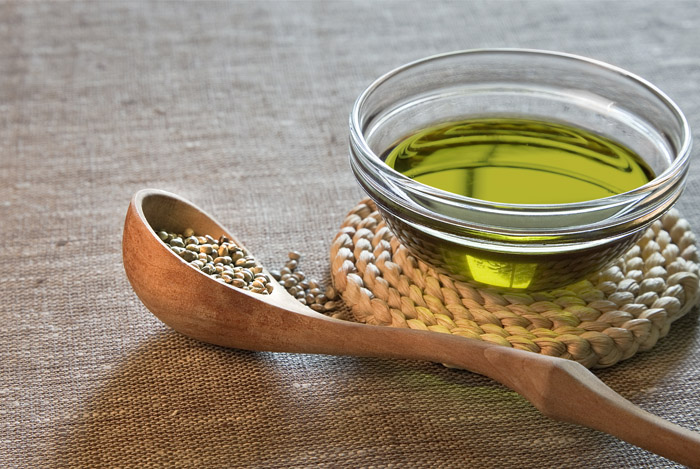 DHA and EPA have been proven to lower triglycerides, which is a fat in our blood. Elevated triglycerides have been linked to high cholesterol and heart disease.
DHA and EPA have been proven to lower triglycerides, which is a fat in our blood. Elevated triglycerides have been linked to high cholesterol and heart disease.
Researchers from one study said that:
“Hemp seed oil’s high polyunsaturated fat content — compared to saturated fats — could help reduce people’s cholesterol levels and treat atherosclerosis, or the buildup of materials on the inside of arteries.”
Hempseed oil’s elevated omega-3 levels break down cholesterol and even prevent blood platelet clotting, which keeps heart attacks and strokes at bay.
3. May Prevent Dementia & Alzheimer’s Disease
 The unsaturated fats from hemp seeds make it a perfect replacement for animal-based sources of protein that are high in saturated fat.
The unsaturated fats from hemp seeds make it a perfect replacement for animal-based sources of protein that are high in saturated fat.
Unsaturated fats may be associated with reduced risks for dementia.
According to the Journal of Alzheimer’s Disease: “Elderly people with diets including greater amounts of unsaturated fats had a reduced risk for memory impairment and the later development of dementia.”
Additional research suggests that “older people with a diet high in omega-3 fatty acids were less likely to get Alzheimer’s disease.”
But it’s not just omega-3s that scientists believe to be beneficial.
One analysis concluded that the omega-6 called γ-linolenic acid in hemp seed “provides it with a high pharmaceutical value for degenerative chronic diseases” – including atherosclerosis, cardiovascular disease, Alzheimer’s disease, and even certain types of cancer.
4. Boosts Immunity & Fights Fatigue
 The high concentration of omegas in hemp seeds also aids the transportation of oxygen to cells throughout the body. When you have oxygen in cell membranes, it helps block viruses, fungal infections, and bacteria, which leads to less colds and flus come winter.
The high concentration of omegas in hemp seeds also aids the transportation of oxygen to cells throughout the body. When you have oxygen in cell membranes, it helps block viruses, fungal infections, and bacteria, which leads to less colds and flus come winter.
The health benefits of hemp seeds don’t end with their omega-3 and omega-6 fatty acids.
Hemp seed protein may also have anti-fatigue effects. During one study, researchers found that hemp seed protein improved the immune systems of mice and even allowed them to swim for longer periods of time during the trial.
5. Eases Dry, Itchy Skin
 Because hempseed oil is so high in balanced omega-6s and omega-3s, scientists believed that it would be beneficial for those suffering from atopic dermatitis, which is a skin condition with symptoms such as dryness, itchiness, and scaly skin.
Because hempseed oil is so high in balanced omega-6s and omega-3s, scientists believed that it would be beneficial for those suffering from atopic dermatitis, which is a skin condition with symptoms such as dryness, itchiness, and scaly skin.
They compared hemp seed oil and olive oil over 20 weeks. The results showed that “both skin dryness and itchiness improved…dermal medication usage decreased”, and the skin retained more moisture “after hemp seed oil intervention”.
If hemp seed oil could work wonders for serious skin issues like this, it will definitely ease your dry winter skin.
6. Alleviates Arthritis and Joint Pain
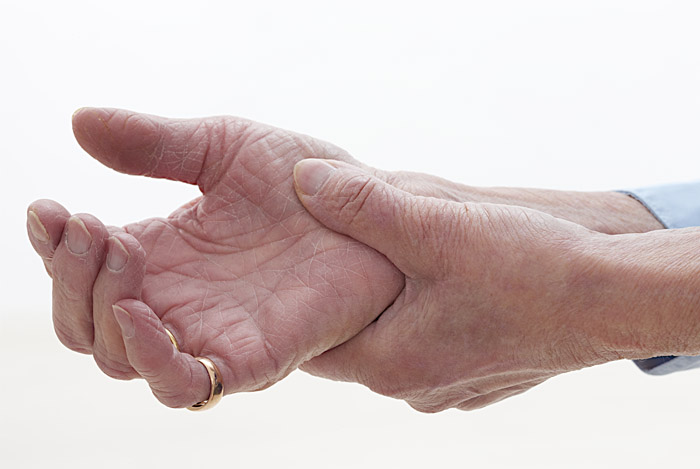 According to a study published in the journal of Arthritis and Rheumatism, consuming gamma linolenic acid (GLA), an omega-6 fatty acid found in hemp seeds, “reduced arthritis symptoms by 25% compared to the placebo at only 4%”.
According to a study published in the journal of Arthritis and Rheumatism, consuming gamma linolenic acid (GLA), an omega-6 fatty acid found in hemp seeds, “reduced arthritis symptoms by 25% compared to the placebo at only 4%”.
7. Packed with Fiber
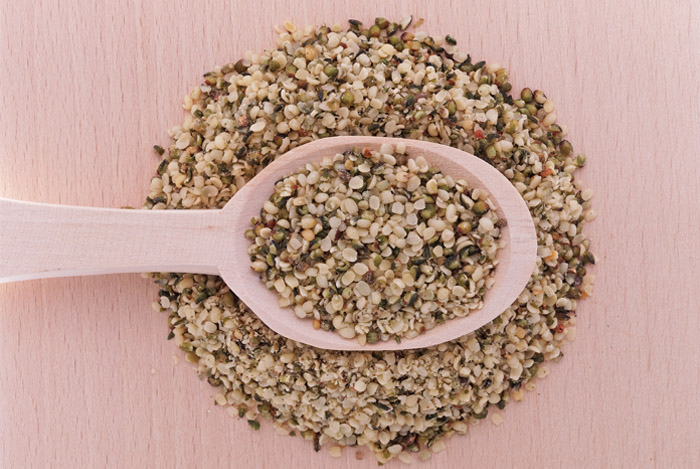 Like I mentioned earlier, whole hemp seeds have more insoluble fiber than shelled hemp hearts.
Like I mentioned earlier, whole hemp seeds have more insoluble fiber than shelled hemp hearts.
Insoluble fiber helps clean out your digestive system, removes toxins, and keeps your intestinal tract in healthy condition.
Whole hemp seeds have around 16 g of fiber per 3.5 tablespoons. That’s almost half of the recommended 35 g of daily fiber you need!
But hemp powder and flour also contain fiber, unlike whey protein powders. Hemp powders vary by manufacturer, but some contain 12 g of fiber per 2 tablespoons!
The Harvard Public School of Health says diets rich in fiber lower your risk of:
- Heart disease
- Type-2 diabetes
- Constipation
- Diverticular disease
- Colon cancer
The fiber and protein in hemp seeds will also aid your weight loss efforts by curbing your appetite and making you feel fuller longer.
8. Contains All of Our Essential Amino Acids
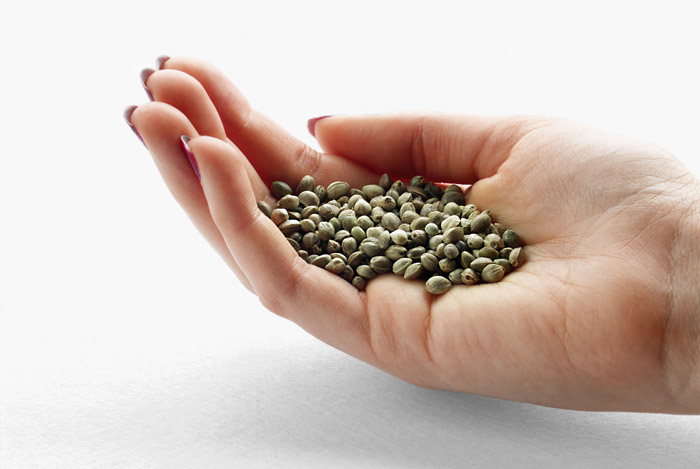 Amino acids and proteins are considered the building blocks of life.
Amino acids and proteins are considered the building blocks of life.
When protein gets broken down in our bodies, we’re left with amino acids. But these aren’t a waste product.
We use amino acids to:
- Break down food
- Grow
- Repair body tissue
- Perform many other body functions
We can even use amino acids as a source of energy.
One study in the Journal of the International Society of Sports Nutrition reported that strength-training athletes oxidized more amino acids during exercise so they were unable to repair damaged muscles or build new muscle tissue.
Billy Locke, AFAA Certified Personal Trainer, says:
“Hemp protein is the best protein for building muscle and promoting overall health because its nutrient density is greater than other protein powders. Plus, it’s filled with bioavailable enzymes and good bacteria to facilitate the conversion of amino acids to muscle.”
Hemp seeds contain all of our essential amino acids.
Each of those specific amino acids is responsible for different functions in our bodies. In order for these processes to happen, our bodies need an adequate supply of both essential and nonessential amino acids.
If you’re missing an essential amino acid for a certain bodily function or repair – sorry, but that process is now put on hold.
The other proteins and amino acids scram; they return to the blood or go back to the liver to be excreted later. So the whole process has to start over whenever the body gets the right amount of amino acids it needs.
Amino acids we don’t use can’t be stored for the future. While it’s not as important to consume every amino acid at every meal, you definitely want to make sure you’re getting them all every day.
Hemp is a perfect way to meet this goal.
9. Complete Protein Source
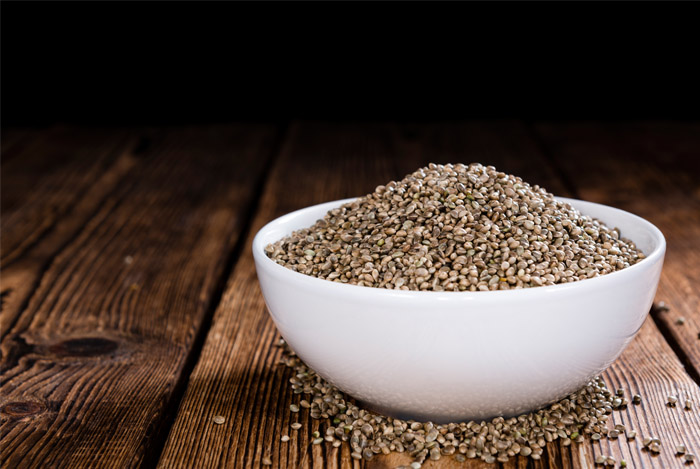 Whole hemp seed can be up to 25% straight protein. Like I mentioned before, one ounce (2 tablespoons) of hemp seeds contains 10 g of protein.
Whole hemp seed can be up to 25% straight protein. Like I mentioned before, one ounce (2 tablespoons) of hemp seeds contains 10 g of protein.
Hemp seeds have more protein per ounce than both chia seeds (4.7 g) and flax seeds (5.1 g).
Bonus: hemp seeds are a high quality protein for vegetarians and vegans.
Now, I’m not talking about expensive brands being high quality. Protein quality is based on the concentration of amino acids. As we know, hemp’s amino acid record is stellar.
“Proteins with more complete amino acid profiles are digested and used more efficiently by the body.”
How is this efficiency measured?
Well, one measurement known as the protein digestibility-corrected amino acid (PDCAA) score, is based on the digestibility of each chosen protein source.
A study in the Journal of Agricultural and Food Chemistry discovered that hemp seed protein PDCAA score is “greater or equal to many other vegan protein sources including grains, nuts and certain legumes.”
This may come from the fact that hemp protein is composed of albumin and edestin, two very easily digestible proteins, and the rich source of helpful omega-3s. Hemp has more of these essential fatty acids than any other plant source.
10. The Better Dairy Milk Replacement
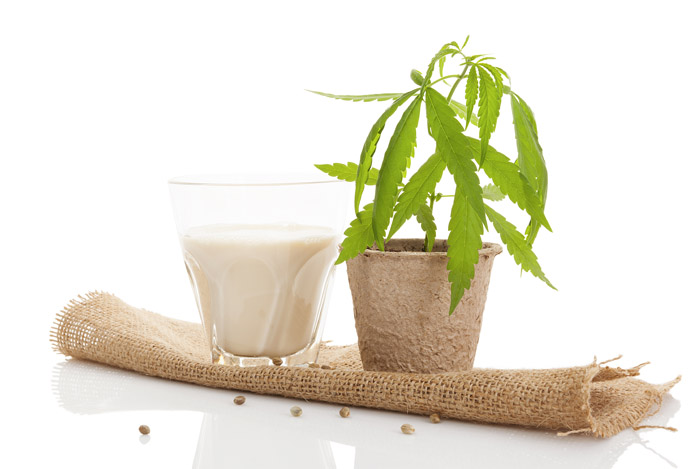 There are many non-dairy milks on the market these days, but they all have their downsides.
There are many non-dairy milks on the market these days, but they all have their downsides.
Vegans and lactose-intolerant people can’t have dairy milk. If you’re allergic to tree nuts you have to stay away from almond milk. If you’re suffering from diabetes, rice milk may be too sweet for you. Have a soy allergy? That knocks out soy milk for you.
So as you can see, out of all the non-dairy milks out there, hemp is the clear winner because it works for almost everyone.
The most common non-dairy milk is soy milk. But the protein in soy milk can be hard for the body to digest. Plus, it “contains inhibitors that block the action of trypsin and other enzymes that are needed to break down protein.”
The result of these blockages? Bloating and gas. Yuck!
Because hemp protein is so easy to digest, it’s a much better choice for those looking to avoid animal milk due to dietary or medical constraints.
Hemp milk is also the only milk source with the perfect ratio of essential omega-3 and omega-6 fatty acids.
11. High in Magnesium
 Magnesium is considered an essential macro mineral. It’s involved in over 300 enzymatic functions within our bodies, some of which include:
Magnesium is considered an essential macro mineral. It’s involved in over 300 enzymatic functions within our bodies, some of which include:
- Metabolizing food for energy
- Synthesizing fatty acids and proteins
- Neuromuscular transmission and activity
- Muscle relaxation
- Bone formation and health
- Anti-anxiety and stress reducer
“Less than 30% of U.S. adults consume the Recommended Daily Allowance (RDA) of magnesium. And nearly 20% get only half of the magnesium they need daily to remain healthy.”
Magnesium deficiency is linked to insulin resistance, metabolic syndrome, coronary heart disease, osteoporosis, chronic insomnia, and high levels of anxiety and stress.
The recommended daily dose of magnesium is 300-400 mg, depending on age and gender.
One ounce (2 tablespoons) of hemp seeds has 179 mg of magnesium, which equals roughly 45% of your DV.
“For every 100 mg/day increase in magnesium intake, the risk of developing type 2 diabetes decreases by approximately 15%.”
Plus, adding more magnesium to your diet via hemp seeds will have you feeling more relaxed so you’ll feel less tension, have more energy, and fall asleep faster.
Final Notes
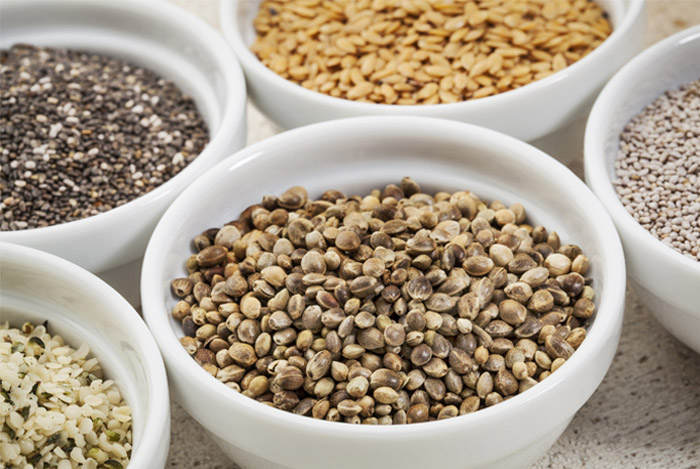 Although I’ve written about chia seeds more times than I can count, I actually prefer hemp seeds if we’re speaking strictly about taste.
Although I’ve written about chia seeds more times than I can count, I actually prefer hemp seeds if we’re speaking strictly about taste.
Chia seeds taste like tiny seeds. I love the way they make me feel and I love making chia seed puddings, but I feel like a bird when I eat a handful of them.
If you’re looking for a delicious way to get more healthy benefits from superseeds, pick up a bag of hemp hearts. Try a tablespoon right out of the package, I guarantee you’ll go back for more.
Now that you know how amazing hemp protein, milk, and oil are, you’ll be itching to incorporate them in your diet as well. Be prepared to get high on nutrition!
Have you tried hemp yet?
The post 11 Amazing Health Benefits of Hemp appeared first on Nutrition Secrets.
http://www.nutritionsecrets.com/health-benefits-of-hemp/
No comments:
Post a Comment